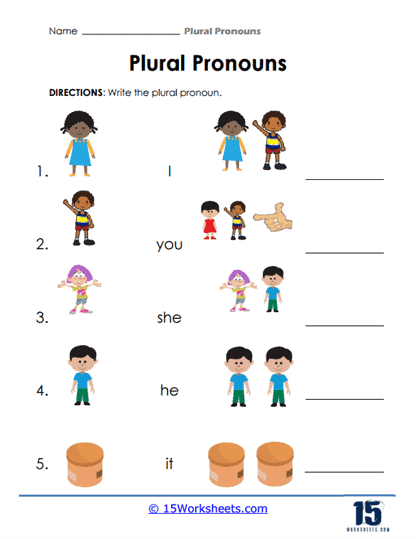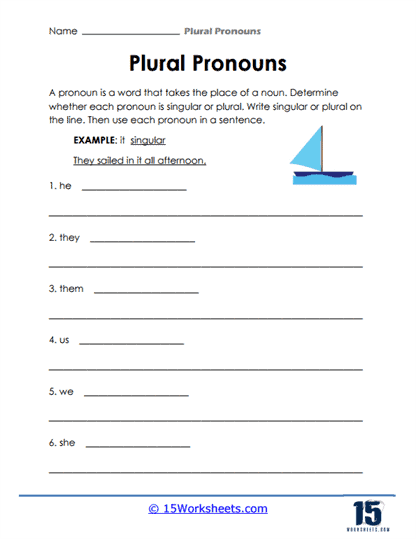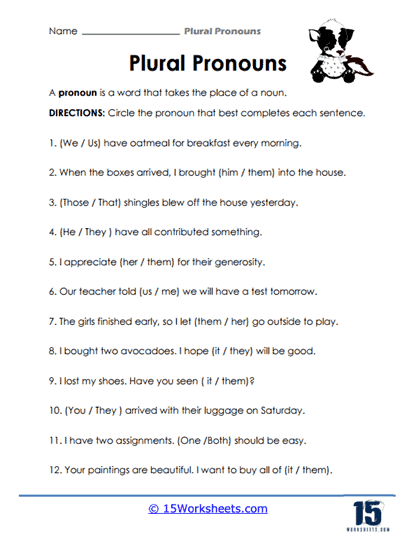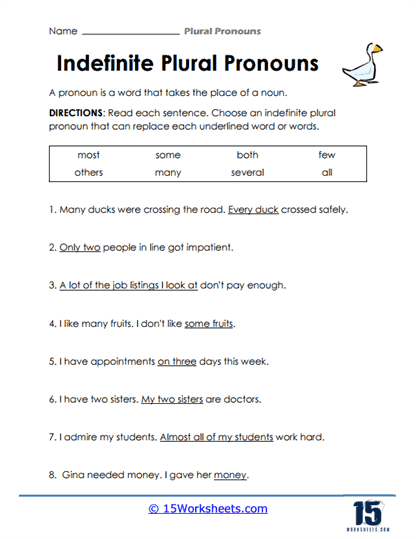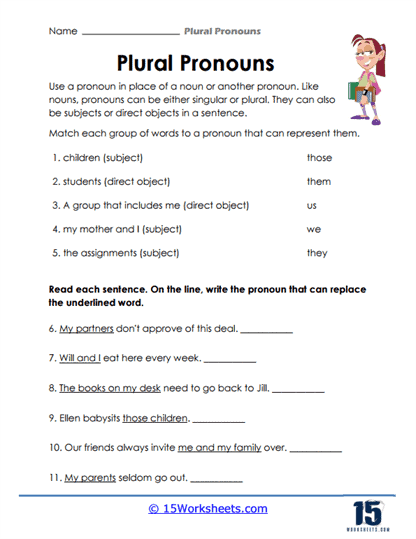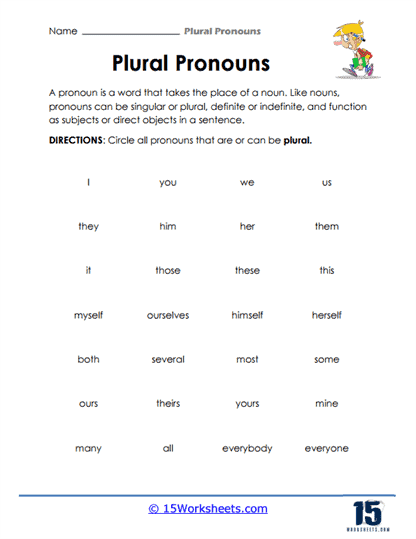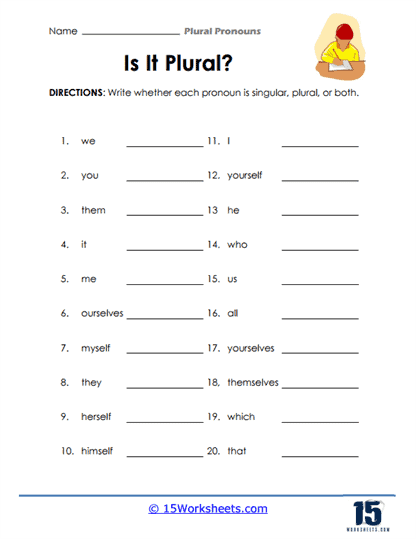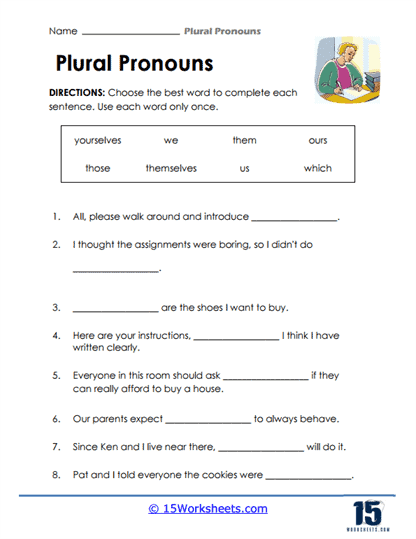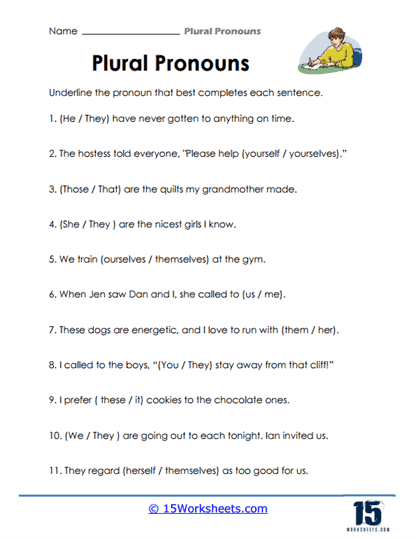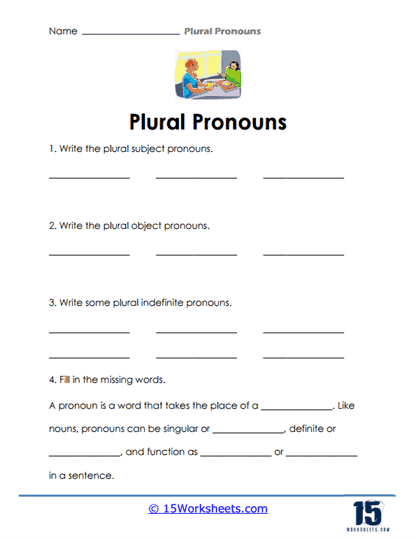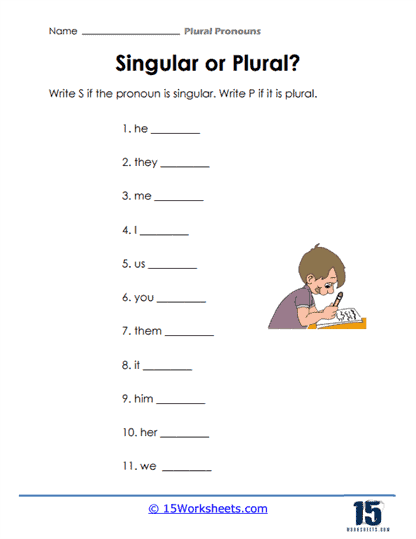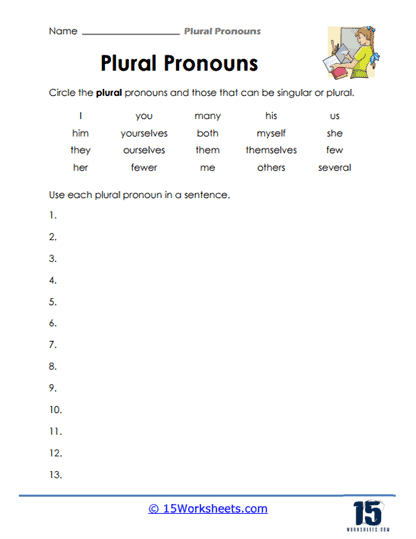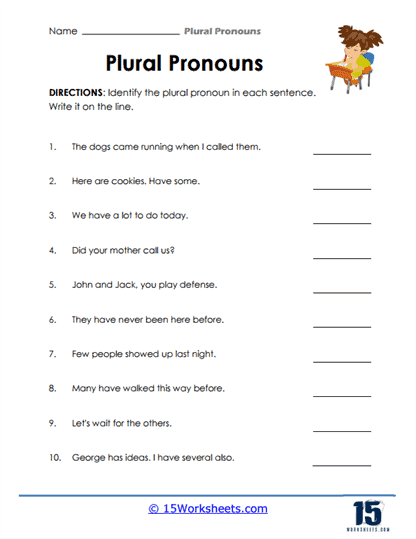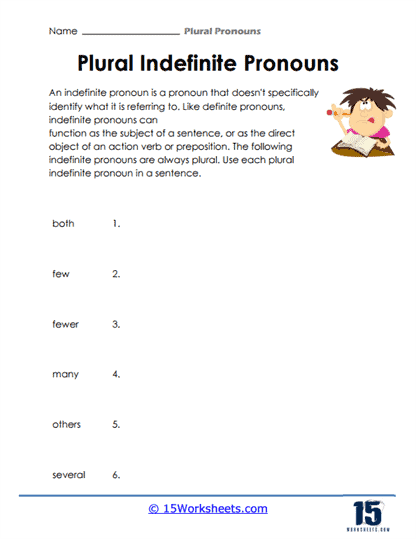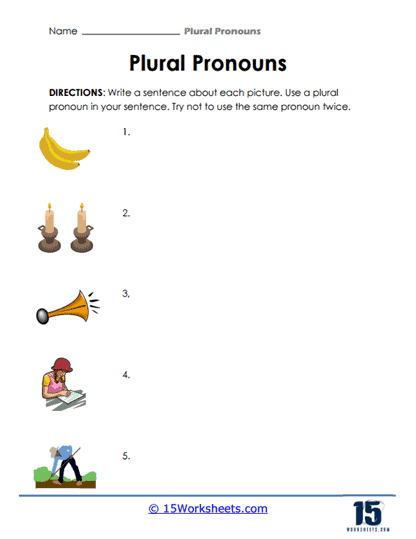Plural Pronouns Worksheets
All About These 15 Worksheets
These plural pronouns worksheets are designed to help students learn and practice the use of plural pronouns in English grammar. These worksheets provide a range of exercises that require students to identify and use plural pronouns correctly in sentences.
These worksheets include fill-in-the-blank exercises, identification activities, and writing prompts. They cover a range of plural pronouns, including personal pronouns (such as “we,” “us,” and “they”), possessive pronouns (such as “ours” and “theirs”), and reflexive pronouns (such as “ourselves” and “themselves”). By completing these worksheets, students will:
- Determine plural pronouns and their usage using visual cues from pictures;
- Use plural pronouns in their own sentences correctly;
- Understand how indefinite plural pronouns are used in sentences;
- And distinguish plural subject pronouns from plural object pronouns, and singular pronouns from plural pronouns.
These worksheets are an important tool for helping students improve their grammar skills and develop accuracy in their writing. By completing these exercises, students can gain a better understanding of the rules of using plural pronouns and practice applying them correctly in their writing. They are also useful for reinforcing grammar concepts taught in the classroom and helping students build confidence in their language abilities.
Plural pronouns and its forms
Plural pronouns are a type of pronoun that are used to refer to two or more persons, places, things, or ideas. They are important for clear and effective communication in English. Here are the most common forms of plural pronouns, including the indefinite plural, and some examples of how to use them:
- Personal pronouns
- We: “We are going to the beach tomorrow.”
- You (plural): “Are you coming to the party tonight?”
- They: “They want to go to the movies tonight.”
- Possessive pronouns
- Ours: “This is our car.”
- Yours (plural): “Is this yours or theirs?”
- Theirs: “The house on the corner is theirs.”
- Reflexive pronouns
- Ourselves: “We need to take care of ourselves.”
- Yourselves: “You can help yourselves to the snacks.”
- Themselves: “They always take care of themselves first.”
- Indefinite plural
- Everyone: “Everyone brought their own lunch to the picnic.”
- Many: “Many have tried, but few have succeeded.”
- Few: “Few are brave enough to face their fears.”
Note that some pronouns, such as “us,” “our,” and “them,” can be used as both singular and plural pronouns, depending on the context of the sentence.
Using plural pronouns correctly is important for effective communication and clear grammar in English. It’s important to choose the appropriate pronoun based on the number of entities being referred to and to ensure that the pronoun agrees with the verb in terms of number.

